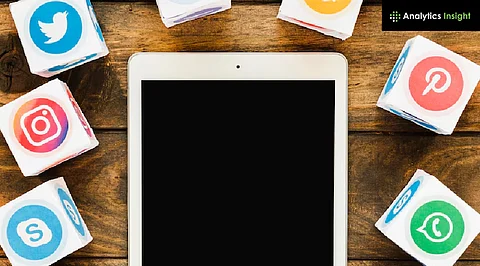

Top social, shopping, and payment apps collect extensive personal data, including contact details, location, and financial information.
Permissions often go far beyond what’s needed for basic app functions, enabling continuous data collection and profiling.
Regularly reviewing app settings and limiting data sharing can help protect sensitive information and reduce privacy risks.
Swipe, scroll, tap. Repeat. Every day, millions interact with the world’s most popular apps, but there’s a side that rarely makes it to the spotlight. The top apps on smartphones aren’t just connecting people or making shopping easy; they’re collecting more personal data than most realize.
A recent study by Apteco lays it out plain and simple: the biggest names in tech are also the hungriest when it comes to sensitive, identifiable information.
A handful of apps dominate when it comes to gathering personal information. Here’s the top 10 list revealed by Apteco:
Facebook (Meta)
Instagram (Meta)
Threads (Meta)
Amazon Alexa
Amazon Shopping
YouTube (Google)
X (formerly Twitter)
PayPal
Each app captures a wide range of details, from contact information to behavioral and even financial data.
Also Read: E-ZPass 'Smishing' Scams Surge: How to Protect Your Personal Information
This isn’t about basic sign-up details. Today’s top apps gather a dense web of information:
Full names, phone numbers, and addresses
Device and location data, sometimes down to street level
Contact lists and calendars
Search and watch history
Purchase records and payment details
Voice and audio recordings (think Alexa)
Put simply, the data paints a strikingly precise portrait, tracking routines, career connections, shopping habits, and private chats.
Free social apps come without a price tag, but payment is made with personal information. Each data point fuels algorithms, shapes advertisements, curates recommendations, and determines the flow of content in feeds. Additional information refines targeting, increases ad sales, and perfects user profiles. Permission requests often extend far beyond what is necessary for basic app functions.
Also Read: Caught in a Data Trap? What to Do if Your Information is Stolen
Apple tried to shift the balance with App Privacy Labels, forcing transparency around how apps track and use personal data. But as Apteco’s study shows, the sheer volume and scope of collection remains staggering. Billions use these apps worldwide, and for most, the trade-off is silent as data is exchanged for free services, convenience, or connection.
Deleting every popular app isn’t practical for most. Small adjustments can still boost privacy:
Review app permissions. Only enable access to location, microphone, or contacts if truly necessary.
Limit tracking. Privacy settings on devices like iPhone and Android can restrict tracking and location sharing.
Share less information. Avoid connecting contact lists or saving payment details unless absolutely essential.
Try alternatives. Safer alternatives exist in the form of privacy-first apps, with Signal for communication and DuckDuckGo for internet browsing.
Privacy isn’t just a tech buzzword. It’s a digital footprint, and it’s more vulnerable than ever. The top ten data-hungry apps are everyday essentials for many, but each tap and swipe quietly adds to the information pool. With more awareness about what’s collected, sensitive information can be kept private. It starts with a few quick settings, but the habit of checking what’s shared is the strongest shield available. Next time an app asks for more access, take a pause and review what’s really being shared.
